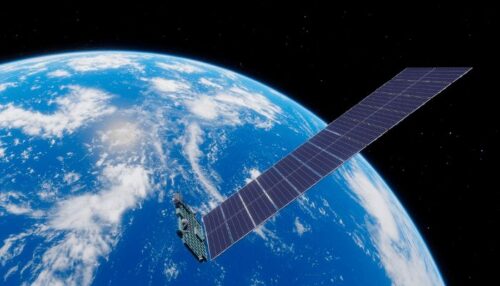
Rapid Subscriber Growth
In less than two years, Starlink has risen to become Nigeria’s second-largest Internet Service Provider (ISP). By the end of the third quarter of 2024, it had 65,564 subscribers, trailing only Spectranet Ltd, which boasts 105,441 active users.
Since December 2023, Starlink has expanded its customer base by an impressive 174.36 percent. The company, launched by SpaceX on January 30, 2023, through a tweet, has outpaced other ISPs in growth within Nigeria.
Expanding Reach Across Africa
Since its debut, Starlink has rapidly gained traction across Africa. It currently operates in at least 16 of the continent’s 54 countries, with more launches expected in 2025.
Demand has surged significantly, leading to order suspensions in five major Nigerian cities: Lagos, Abuja, Port Harcourt, Benin City, and Warri. A similar trend occurred in Kenya, where subscriptions reached 8,000 within a year, and in Zimbabwe, where services sold out in Harare just two months after obtaining a license.
ISP vs. Mobile Internet Dominance
Despite Starlink’s rapid growth, ISPs still lag behind mobile internet providers in Nigeria. As of January 2025, the country had 169.04 million mobile internet users, while fixed broadband subscribers, who rely on ISPs for stable, high-speed connections, stood at just 307,946.
Unlike mobile internet, which depends on base stations and faces congestion issues, fixed broadband offers superior speeds via fiber cables. Starlink’s unique satellite technology bypasses these limitations, providing faster connectivity.
Rising Costs, Unwavering Demand
Starlink entered Nigeria with an initial hardware cost of N274,098 and a monthly subscription fee of N19,260. However, inflation and currency devaluation have driven these prices up. Currently, standard subscriptions cost N75,000 per month, while hardware is priced at N590,000. Despite the price hike, demand remains high, largely due to Starlink’s impressive speeds of 50Mbps to 200Mbps, far exceeding Nigeria’s average of 20Mbps.
Competitive Edge Over Traditional ISPs
Unlike conventional ISPs, Starlink does not rely on Nigeria’s underdeveloped broadband infrastructure. It also avoids challenges such as rising diesel costs and multiple taxation issues. Ayoola Oke, a former advisor to the Nigerian Communications Commission’s CEO, has warned that up to 90 percent of local telecom firms may shut down within five years due to these challenges.
SpaceX’s Technological Advantage
Starlink’s strength lies in its network of nearly 6,000 satellites, which SpaceX launches into orbit. These satellites communicate directly with user terminals, beaming high-speed internet to remote locations. In January 2024, a SpaceX engineer reported that over 42 petabytes of data were transmitted daily through Starlink’s system.
Unlike traditional satellite internet services, Starlink’s satellites operate in low-Earth orbit, allowing for smaller coverage areas and requiring user terminals to maintain continuous connections with passing satellites. This setup gives Starlink an advantage over ISPs that need extensive infrastructure for expansion.
Bridging Nigeria’s Digital Divide
Starlink has made internet access possible in underserved areas. With broadband penetration below 50 percent and 27 million Nigerians lacking broadband access, the satellite provider offers a viable, though costly, solution.
According to Starlink’s website, the service is ideal for locations where traditional connectivity has been unreliable or nonexistent. Users worldwide rely on Starlink for education, healthcare access, and communication during natural disasters.
Elon Musk’s Vision and Market Disruption
In 2020, Elon Musk predicted that “everywhere on Earth will have high-bandwidth, low-latency internet.” On May 20, 2024, he celebrated Starlink’s milestone, tweeting, “Congratulations to the @SpaceX team on passing 3 million customers in 99 countries! And thanks to you for buying @Starlink.”
While Starlink may not replace mobile internet as Nigeria’s primary gateway, it has undeniably shaken up the market by offering faster and more reliable connectivity.
According to Biodun Omoniyi, CEO of VDT Communications, Starlink’s presence provides Nigerian consumers with more choices. “Some will adopt this solution, while others will stick to mobile devices for internet access, and some will use fixed wireless alternatives. The key benefit is increased options for consumers.”
Starlink’s impact is clear: it has changed the landscape of internet service in Nigeria, offering speed, reliability, and expanded accessibility.


